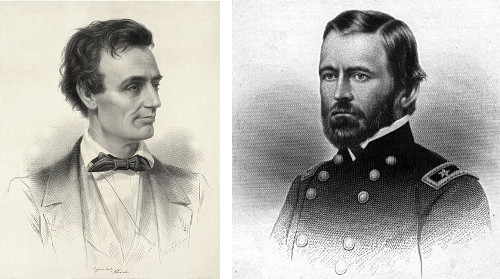
On May 29, 1856, Abraham Lincoln spoke “like a giant enraged” for 90 minutes before a crowd of a thousand people at a political convention in Bloomington, Ill. Strangely, no one knows what he said. According to legend his oratory held the audience so spellbound that no one thought to record a word of it; more likely it was such a passionate denouncement of slavery that his political advisers thought it wisest to suppress it. But it electrified the audience, and the convention led to the establishment of the state Republican party.
“What actually did Lincoln say that evening in May, 1856, that made such a stupendous impact … and in ninety minutes transformed Lincoln from a circuit-riding Illinois lawyer and office-seeker into a national leader?” asks Elwell Crissey in Lincoln’s Lost Speech (1967). “Here we encounter a fascinating enigma in American history.”
Ulysses Grant, by contrast, had a “perfect speech” that he used on several occasions beginning in 1865. From Grant: A Biography (1982), by William S. McFeely:
In the afternoon there was a dinner at which tediously predictable worthies of New York — John A. Dix, Horace Greeley, and a divine or two — gave speeches. At the close of the tributes, Grant rose and, as he had done in St. Louis more than a year earlier, gave the speech which was to become his trademark. The New York Times report included the response of his audience: ‘I rise only to say I do not intend to say anything. [Laughter] I thank you for your kind words and your hearty welcome. [Applause].’
